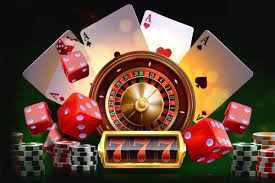Casinos have long been synonymous with glamour, risk, and the koplo77 link alternatif promise of fortune. These establishments, where games of chance are played for money, hold a unique place in the cultural and economic landscape of many countries around the world. From the dazzling lights of Las Vegas to the understated elegance of Monaco, casinos attract millions of visitors each year seeking excitement, entertainment, and perhaps a bit of luck.
Origins and Evolution
The history of casinos stretches back centuries, with early forms of gambling establishments appearing in ancient civilizations such as the Greeks and Romans. However, the modern concept of a casino as we know it today began to take shape in the 17th century in Italy, where the term “casino” originally meant a small villa or summerhouse. These villas often hosted social gatherings where gambling was a central activity.
Casinos evolved significantly over time, particularly in the 20th century, when they became more formalized and regulated. Las Vegas, Nevada, emerged as a global hub for gambling and entertainment after the legalization of gambling in 1931. The construction of iconic casinos such as the Flamingo, Sands, and Caesars Palace transformed the city into a mecca for those seeking both high-stakes gambling and world-class entertainment.
The Casino Experience
Entering a casino today can be a sensory overload for the uninitiated. The sights and sounds of slot machines, the clatter of chips on the roulette table, and the intense concentration at the poker tables create an atmosphere unlike any other. Casinos often spare no expense in creating an ambiance of luxury and excitement, with opulent decor, fine dining options, and entertainment ranging from concerts to theatrical performances.
Games offered in casinos vary widely, catering to different tastes and levels of risk. Slot machines, which require little skill and offer instant gratification, are among the most popular attractions. Table games such as blackjack, roulette, and craps require a blend of strategy, luck, and nerve. Poker, in its various forms, remains a staple for both casual players and professionals alike, with high-stakes tournaments drawing international attention.
Economic Impact
Beyond their entertainment value, casinos play a significant role in local and national economies. They create thousands of jobs in hospitality, gaming, and entertainment sectors, providing livelihoods for many. In destinations like Las Vegas and Macau, casinos are major contributors to tourism revenue, drawing visitors from around the world who spend money not only on gambling but also on accommodations, dining, shopping, and other entertainment.
However, the economic impact of casinos is not without controversy. Critics argue that the industry can lead to social issues such as gambling addiction and increased crime rates. Efforts to mitigate these concerns often include strict regulations, responsible gambling initiatives, and support for problem gambling treatment programs.
Legal and Regulatory Landscape
The legality of casinos varies widely across the globe. While some countries, like the United States and Macau, have well-established gambling industries, others strictly regulate or outright ban gambling activities. In recent years, the rise of online casinos has further complicated the regulatory landscape, with debates over jurisdiction, consumer protection, and taxation ongoing.
Regulatory bodies oversee casino operations in many jurisdictions, ensuring fairness in games, preventing money laundering, and safeguarding the interests of both players and operators. Compliance with these regulations is crucial for casinos to maintain their licenses and uphold their reputations.
Conclusion
Casinos are more than just places to gamble; they are cultural icons, economic powerhouses, and sources of controversy. Whether viewed as glamorous playgrounds for the wealthy or as contentious symbols of vice, casinos continue to capture the imagination and evoke strong emotions. As they navigate evolving societal attitudes and regulatory challenges, their impact on economies and communities remains a topic of ongoing debate.
In the end, whether one sees casinos as symbols of opportunity or cautionary tales, their allure as centers of excitement and risk is unlikely to fade anytime soon. For better or worse, casinos remain a defining feature of the modern entertainment landscape.

